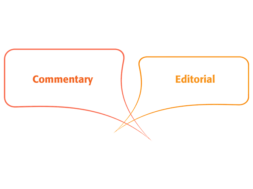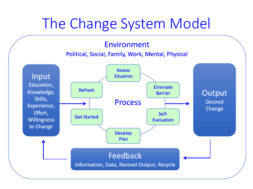
Typical Government Dishonesty: Dear Colleague Letter on Third-Party Servicing
By Glenn Bogart, J.D
Everybody who reads this publication regularly knows I take a dim view of the federal administrative state. The Congress writes laws that outline what they want the administration to do. The enabling language in those laws says the executive branch may do whatever is necessary in order to effectuate the purpose stated in the legislation. The president signs it into law, and then the agency responsible for implementing the legislation … goes hog-wild.
The gainful-employment adventure is the best-known of the Department’s recent power grabs. But this is not the only insane offensive the Department has mounted. There’s a new one: A Dear Colleague Letter, GEN-15-01, which threatens people like me – financial aid consultants.
This Dear Colleague Letter also threatens you as a school, if you happen to use a financial aid consultant to help you figure out what you should do in order to be in compliance with Title IV requirements. Basically, the DCL puts you on notice that if you contract with anyone to provide a covered service, you have to report that person or company as a third-party servicer. It lists financial aid consulting as one of the things that should be considered as a third-party service that should be reported to the Department. I say, wait a minute,
If you read the regulatory definition of “third-party servicer,” in 34 CFR 668.2, you will see that it includes only people or entities who “administer, through either manual or automated processing,” any aspect of a school’s participation in Title IV.
Incidentally, this wording comes straight from the statute (20 USC 1088). If a person does not do that, he, she, or it is not a third-party servicer.
I find it interesting that the DCL in question sets forth “financial aid consulting” as if it were one of the areas of administration listed in the regulations, when in fact, it is not. The DCL lists numerous things straight from the regulation that are areas of financial aid administration, and then includes “financial aid consulting,” as if it were listed as one of those areas set forth in the regulation. In fact, financial aid consulting is not listed in the regulation at all.
That doesn’t mean that ED is completely off base in this Dear Colleague Letter. It surely is possible that some people or organizations are in the business of “administer(ing), through manual or automated processing,” aspects of Title IV for schools, yet are not submitting annual compliance audits as they should. To the extent that the DCL is meant to put them on notice that they need to submit audits, that’s fine.
As sometimes happens in busy (and busybody) government offices, it appears to me that the Department of Education neglected to read the statute, not to mention, its own regulation, before spouting off on what they mean.
And it took them over 20 years to get around to doing even that (the third-party servicer definition, and audit requirement, first appeared in the Federal Register issue of April 29, 1994). Sound familiar? 35 years to define gainful employment, 20 years to re-define third party servicing (although without benefit of regulation – at least they went through the motions on gainful employment).
So, the question for me is, have I been laboring under a mistaken belief, since April 29, 1994, that I am not a third-party servicer? The regulation hasn’t changed since that date, notwithstanding this Dear Colleague Letter.
The plain language of the regulatory definition of “third-party servicer” says a person or organization is one if, and only if:
- It is engaged in the administration of any aspect of Title IV, and
- this administration is done “through either manual or automated processing.”
Now, the main thing I do in my consulting business is to perform Title IV compliance reviews for schools. I pick a bunch of student files, I examine them, and then I report to the school on what I found.
“Administration,” to my mind, is the process of turning the pig, which is the ISIR, into sausage, which is the financial aid disbursement. It is also the process of returning some of the sausage to the farmer, in the event that it doesn’t get completely eaten (i.e., calculating and paying Returns of Title IV funds when a student drops out). OK, the analogy isn’t perfect. But, it seems to me that I am no more involved in “administration” than is a USDA sausage inspector (or, a Department of Education program reviewer). But maybe that’s just my opinion. I think what I do is not administration, but even if we stretch it, and assume that it is, there is still the second part of the definition …
Are my compliance reviews a form of administration done “through either manual or automated processing?” I don’t think so. To continue the analogy, the processing is done through killing the pig, skinning it, chopping the meat up into little pieces, mixing those pieces of meat with various spices, then cooking the mixture, casing it, boxing the sausages, etc. It can be done manually, or in automated fashion. That’s manual or automated processing. All I do is to look over that entire operation and give opinions on how to make the process more sanitary, so as to avoid having that USDA inspector come in and lock the doors. Not only do I not administer anything; I don’t do it through either manual or automated processing, unless you count word processing. It’s true that I do a lot of that.
Look at what the DCL says, in listing financial aid consulting as a Title IV administrative activity:
Financial aid consulting, including financial aid staffing, interim management, processing support, and/or development and maintenance of written policies and procedures.
I think there may be a way out. I just will keep on not doing the “including” things listed above. Presumably when the Department says “Financial aid consulting, including ….” W, X, Y, and/or Z, it is meant to be an exhaustive list of consulting activities that have to be audited. Otherwise, they would have said, “including, but not limited to …” Right? Well, who knows?
Oh, one other thing. All of the activities listed in the regulation on third-party servicing (as opposed to the Dear Colleague Letter) are things that a school could do for itself, but might choose to hire a third party to do.
But in the Dear Colleague Letter, suddenly “financial aid consulting” appears – the one thing that a school cannot do for itself. Consulting, by definition, has to be done by a third party. Obtaining financial aid consulting services is completely optional, and as to independent compliance reviews, it is something that obviously must be done by a third party if it is to be done at all. If your own people do it, it isn’t consulting. Yet the regulation was designed to cover only activities that must be done, either by the school itself, or by a third party hired by the school … It was never meant to include optional activities.
In response to the Dear Colleague Letter, I wrote to the Department of Education some 11 months ago. I told them pretty much the same things I’ve said in this article. To date, there has been no substantive response. I wanted to publish this many months ago, but thought it would be only fair for me to give them some time to respond before doing so. Time’s up. Time for them to put up, or shut up.
I believe the Department of Education has deliberately harmed my business.
They have said, in their Dear Colleague Letter, that people like me should have been submitting audits for the past 20 years, even though the regulations do not support this view, and they have demanded that my clients report me as a third-party servicer, even though I am not.
What is there for a CPA to audit, when it comes to my work? Are they going to opine on my opinions, set forth in my compliance review reports? Are they going to review my appeals of final determination letters, and offer critiques of them? Are they going to try to take apart my briefs submitted in support of such appeals? Do they have to sit in on a termination hearing where I am representing a school, and second-guess my representation?
CPAs come to me for advice on Title IV compliance matters. They are in no position to pass judgment on my work. It would be a rare CPA, indeed, who knows more about Title IV compliance than I do. Yet, on the basis of a Dear Colleague Letter, I’m supposed to pay one of them to “audit” my work – when there is nothing in the Audit Guide even to tell them what they are supposed to do in such an audit. Welcome to the insane train.
As far as I know, not one of my clients has reported me as a third-party servicer. I haven’t discouraged them from doing so. It’s up to them, and I don’t care if they do, or they don’t. But if the Department of Education comes after me on this, I’m ready. They are not going to force me to pay for a meaningless audit every year without a fight. Dear Colleague Letters still don’t have the force of regulations. At least, I hope not. In the administrative state, you never know.

GLENN BOGART, J.D. , is a Title IV compliance consultant who specializes in school compliance reviews and Department of Education program review responses and appeals. A former ED program review officer, he holds a bachelor’s degree in government from Southern Illinois University, and earned the Juris Doctor degree at Western New England College in 1986. He resides in Birmingham, Alabama, but travels all over the U.S.
Mr. Bogart started his consulting business in 1992, after having served briefly as director of internal audit and compliance at Phillips Colleges, Inc., and prior to that as corporate vice president for financial aid for another large group of proprietary schools. Over the years, he has contributed frequently to these pages.
Contact Information: Glenn Bogart, J.D. // 3603 Buck Horn Cove Birmingham, AL 35242 // 205-249-5453 // glennbogart@aol.com // www.glennbogart.com







